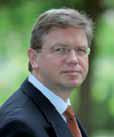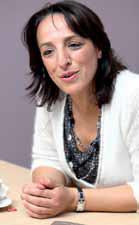Foreword
|
Stefan FüleCommissioner for Enlargement and European Neighbourhood Policy |
The Arab Spring, within the cycle of major political developments of the last twenty years, is a marker of “democratic renaissance” in the region and invites the European Union (EU) to strongly support its development. Several of our neighbours are engaged in a process of transformation from which they intend to emerge as more democratic and prosperous societies. The EU wants to respond to this with determination and ambition, by proposing a new approach to the European Neighbourhood Policy. While drawing lessons from the past, it wishes to support directly and concretely the actors of these changes, and to provide, on the basis of needs expressed by the countries themselves, a more effective support to those partners most committed in the process of democratisation. In a fragile context, the promotion of culture has a fundamental role as a vehicle of both economic and social development. The promotion of cultural dialogue between the two shores of the Mediterranean will remain a priority of our cooperation. It will consolidate the Euro-Mediterranean dialogue and the exchange of experiences. The examples of best practices of cooperation in the cultural sector highlighted in this brochure well reflect all the dynamism of this approach. The EU and its partners must continue to mobilise and use the prism of culture in order to address the complexity of the major changes in the Mediterranean region and to strengthen the implementation of a lasting partnership with our nearest neighbours |
|
The new edition in this brochure, translated into four languages, including Arabic, aims to present to the Mediterranean countries the fundamental importance of the role of culture in two ways: it is both a vehicle for change and expression of freedom, and also a factor of stability in the changing Middle East. We are convinced that by recognizing and supporting cultural diversity in the South of the Mediterranean we will accompany the actors involved in this phase of change and with them we will create the conditions for a lasting partnership. Cultural and human dimensions must mobilize and guide our joint actions for development, peace and stability. This brochure calls for action! |
Fadila Laanan, |
|
Androulla VassiliouCommissioner for Education, Culture, Multilingualism and Youth |
The events that have recently taken place in the Southern Mediterranean have shown the acute challenges these countries are facing: consolidation of democracy, strengthening of respect for human rights, good governance and economic development. These events have also highlighted the key role that civil society can play in the political evolution of a country and, in the forefront of it, are the artists and the cultural sector. I firmly believe that, as illustrated in this booklet, culture can provide solutions to challenges facing the countries of the southern Mediterranean in the areas of sustainable development, economy, social cohesion, peace building and conflict prevention. That is why we must do all within our power to promote international cooperation in the cultural field and ensure that the cultural dimension is integrated into development cooperation and development programmes. The principles set by the 2005 UNESCO Convention on the protection and promotion of the diversity of cultural expressions for the promotion and protection of cultural diversity, a cornerstone of the relationships between the European Commission and the third countries on cultural matters, will continue to guide us in our efforts. |
|
This past year we have seen a number of countries in the Mediterranean area shaken by popular movements calling for more equality, justice and sharing. In the light of these events, this revised edition of the brochure focuses on cultural initiatives in the region. Poverty reduction throughout the world is the main aim of EU development policy. I would like this policy not only to be effective, but also to make a real difference to people’s lives. I am convinced that a society’s culture and heritage form an essential part of its lasting social, human and economic development. They are a breeding ground for varied and productive occupational activities and allow diversity and reconciliation to flourish in difficult circumstances. I firmly believe that culture is at the heart of human development. It plays a key role in social cohesion and stability and in the participation and real emancipation of young people and women, while contributing to democracy, human rights and the rule of law. This is the path we wish to take with our partners. |
Andris Piebalgs
|
|
Martin DavidsonCMG, Chief Executive of the British Council |
It is sometimes difficult to persuade the political powers-that-be of the value of educational and cultural projects for development cooperation. The British Council has 75 years’ experience in managing artistic and educational projects and the teaching of English. Our partners and the millions of people who have taken part in our programmes tell us that their lives have changed fundamentally as a result, be it through the development of new skills, access to new networks, or through the exchange of ideas. The impact of cultural relations is often a long-term process and is not always easy to measure. This brochure, therefore, is avaluable initiative, as it captures for the first time the practical impact of European cultural projects taking the Millennium Development Goals as their point of reference and in this way providing solid arguments in favour of greater investment. The range and quality of the projects selected are impressive and demonstrate the many options and methods available, while highlighting the creativity of the European cultural organisations and their local partners. |
|
Culture has for too long been considered to be of secondary interest, if not actually alien, to the challenges of development. A long-term view of development must combine education, social inclusion and the promotion of fundamental rights with economic growth and improved nfrastructure. Thus culture plays a role in human and societal development, as restated at the 65th session of the United Nations General Assembly in September 2010. EUNIC, as a partnership-based network of cultural institutions from the EU Member States, offers an important international source of expertise and experience in the field of cultural policies and activities. Through its close ties and relations of trust with cultural institutions, civil society and local artists, EUNIC aims to make an important contribution to expanding the role of culture in development objectives throughout the world |
Ana Paula Laborinho, President of |





